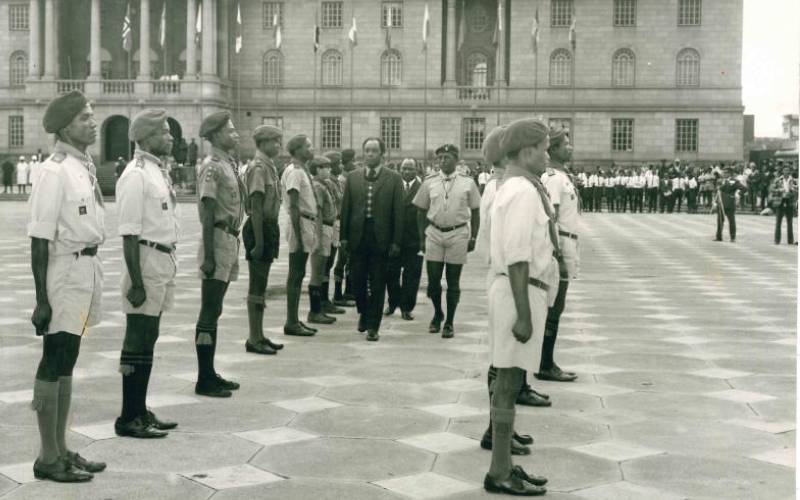×
The Standard e-Paper
Fearless, Trusted News

Dr Njoroge Mungai inspecting a guard mounted by scouts during NYS day outside High Court, 1974. [File, Standard]
Whenever top candidates in national examinations are asked about their career aspirations, many of them have expressed dreams of becoming doctors.